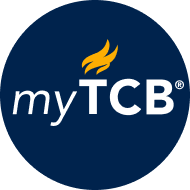Executive Summary
The Conference Board convened a working group involving over 300 executives from 150 companies to discuss how companies can tell their sustainability stories authentically, reliably, and effectively to multiple constituencies. This overview captures the insights, guidance, and best practices from the working group sessions. Additional details can be found in the four accompanying Practical Guides.
Companies face a number of challenges in telling their sustainability stories: 1) deciding what issues are truly important to disclose to convey a clear, cohesive, authentic, and distinctive story about the company; 2) maintaining consistency, ensuring that their story effectively addresses the interests of multiple stakeholders; 3) providing information that’s not only accurate and reliable, but genuinely trusted (including during crises); and 4) managing the ever-evolving—and often frustrating—landscape of sustainability regulations, reporting frameworks, and ESG rating firms—as well as the growing demands by business partners who have their own requests for sustainability-related information.
To tackle some of these challenges, The Conference Board convened a working group of over 300 executives from more than 150 companies who met over the span of 10 months to focus on how companies can tell their sustainability stories authentically, reliably, and effectively to multiple constituencies.[1] Some members of this working group also responded to surveys. This report captures the key insights from the working group sessions as well as the survey results. More detailed guidance can be found in the four accompanying practical guides.
Executive Summary
The Conference Board convened a working group involving over 300 executives from 150 companies to discuss how companies can tell their sustainability stories authentically, reliably, and effectively to multiple constituencies. This overview captures the insights, guidance, and best practices from the working group sessions. Additional details can be found in the four accompanying Practical Guides.
Companies face a number of challenges in telling their sustainability stories: 1) deciding what issues are truly important to disclose to convey a clear, cohesive, authentic, and distinctive story about the company; 2) maintaining consistency, ensuring that their story effectively addresses the interests of multiple stakeholders; 3) providing information that’s not only accurate and reliable, but genuinely trusted (including during crises); and 4) managing the ever-evolving—and often frustrating—landscape of sustainability regulations, reporting frameworks, and ESG rating firms—as well as the growing demands by business partners who have their own requests for sustainability-related information.
To tackle some of these challenges, The Conference Board convened a working group of over 300 executives from more than 150 companies who met over the span of 10 months to focus on how companies can tell their sustainability stories authentically, reliably, and effectively to multiple constituencies.[1] Some members of this working group also responded to surveys. This report captures the key insights from the working group sessions as well as the survey results. More detailed guidance can be found in the four accompanying practical guides.
Insights for What’s Ahead
For determining what to include in your sustainability story (Practical Guide 1):
- Lengthy CSR/Sustainability/ESG reports are becoming a thing of the past. Producing an annual or biennial comprehensive report can be useful for a company that’s new to sustainability reporting or wants a single reference document (although even then it’s outdated as soon as it’s produced). But companies and stakeholders alike are finding that these phone book–style reports don’t meet their needs. Instead, companies are looking to focus on the handful of issues that truly matter to their long-term future and have the greatest impact on stakeholders, society, and the environment. In our polling of some working group members,


